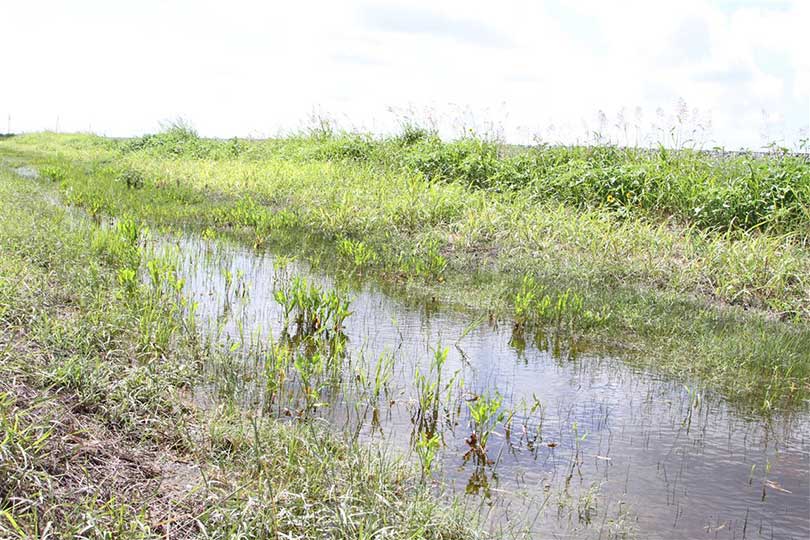By Jessica Domel
News Editor
Texas Farm Bureau, Matagorda County Farm Bureau and more than a dozen other agricultural, municipal and business organizations jointly sent a brief to the Sixth Circuit Court of Appeals in early November urging the court to vacate the Environmental Protection Agency’s (EPA) Waters of the U.S. rule (WOTUS).
In the 100-page court brief, the American Farm Bureau Federation (AFBF) and other organizations outlined reasons the court should strike down the rule, which essentially gives EPA the authority to control what landowners do on property that may only occasionally hold water.
“The toughest part was finding a way to condense all the reasons why this rule violates the law. EPA and the Corps of Engineers did so much wrong that it’s really hard to distill it down to just under 100 pages,” Ellen Steen, AFBF general counsel, said in an interview with AFBF’s Newsline.
By claiming regulatory authority, AFBF officials believe EPA may choose to issue or not issue permits for otherwise every day activities like plowing, clearing land and applying fertilizer—essentially deciding who can farm and how.
“The way the WOTUS rule is written, EPA could apply federal regulations intended to protect rivers, lakes and streams to much smaller water features, such as ditches, farm ponds and even drainage areas in fields,” Jay Bragg, TFB associate director of Commodity and Regulatory Activities, said. “These regulations would limit land use activities and are accompanied with stiff fines that can total $37,500 per day.”
EPA claims the rule clarifies regulatory authority, allowing the agency and the Corps to protect streams and wetlands and their impact on water quality.
The brief filed by the organizations follows a year of litigation over which the court had jurisdiction to hear challenges to the expansive and unlawful rule that affects landowners across the nation.
According to AFBF, the brief explains how EPA flouted important procedural safeguards to ensure a fair and thoughtful rulemaking process.
“They violated the processes that are required in issuing new regulations by ignoring public comment, ridiculing public comments during the rulemaking process, withholding key documents until after the public comment period had ended and then, on top of that, they flew right over the bounds of their limits under the Clean Water Act and what’s required under the constitution for a regulation like this,” Steen said.
EPA’s tactics, according to the brief, included withholding key documents until after the public comment period had closed, ignoring and ridiculing critical public comments and issuing illegal “covert propaganda” to generate superficial public support for the rule.
“EPA set out to achieve a predetermined outcome and then manipulated the public notice-and-comment process to achieve that outcome,” Steen said. “It treated the rulemaking process like a game to be won instead of a deliberative process for developing lawful and reasonable regulations.”
The rule also violates the limits of the Clean Water Act passed in 1972 and the Constitution, according to the brief. It explains how the rule relies on vague definitions to allow the EPA and Corps to regulate land features that are not “navigable waters.”
The brief also explains WOTUS does not provide fair notice to the public of what land features are covered under WOTUS and therefore fall under EPA jurisdiction. It also allows regulators to reach any outcome they please.
“They wrote the word navigable out of the Clean Water Act and they wrote the regulation in such vague terms that it allows bureaucrats in Washington to do just about whatever they want without providing the public with fair notice of what land features are going to be regulated. So, there’s a lot that’s wrong with this rule,” Steen said.
Additional court briefs like the one recently filed will follow, according to Steen. She said judges could hear arguments in the case in March 2017.
“It’s almost anybody’s guess how long it would take for them to hear argument and then reach a decision. It could be that we would have a decision from the court by sometime next summer, or it could go longer than that,” Steen said.
The filing by AFBF, TFB and other agricultural and business organizations comes on the heels of

